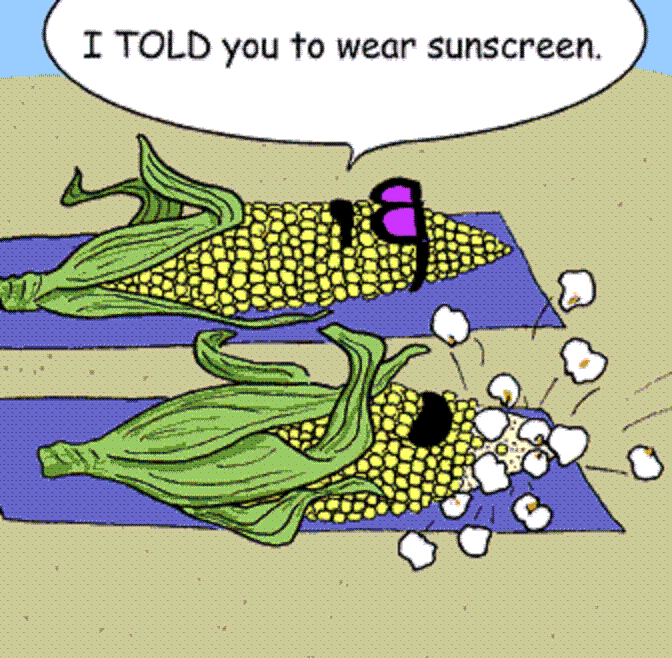Tag: Heat
Weird Water Experiment!
Well here’s more fun with water. After you watch the video check out this article from Discover.
ARVE Error: need id and provider
Temperatures and What They Mean
- 60 degrees – Californians put their sweaters on.
- 50 degrees – Miami residents turn on the heat.
- 45 degrees – Vermont residents go to outdoor concert.
- 40 degrees – You can see your breath, Californians shiver uncontrollably, Minnesotans go swimming.
- 35 degrees – Italians cars don’t start.
- 32 degrees – Water freezes.
- 30 degrees – You plan your vacation in Australia.
- 25 degrees – Ohio water freezes, Californians weep pitiably, Minnesotans eat ice cream, Canadians go swimming.
- 20 degrees – Politicians begin to talk about the homeless, New York City water freezes, Miami residents plan vacation farther south.
- 15 degrees – French cars don’t start, cat insists on sleeping in your bed with you.
- 10 degrees – You need jumper cables to get the car going.
- 5 degrees – American cars don’t start.
- 0 degrees – Alaskans put on T-shirts.
- -10 degrees – German cars don’t start, eyes freeze shut when you step outside.
- -15 degrees – You can cut your breath and use it to build an igloo, Arkansans stick tongue on metal objects, Miami residents cease to exist.
- -20 degrees – Cat insists on sleeping in pajamas with you, politicians actually do something about the homeless, Minnesotans shovel snow off roof, Japanese cars don’t start.
- -25 degrees – Too cold to think, you need jumper cables to get the driver going.
- -30 degrees – You plan a two week hot bath, Swedish cars don’t start.
- -40 degrees – Californians disappear, Minnesotans button top button, Canadians put on sweater, your car helps you plan your trip South.
- -50 degrees – Congressional hot air freezes, Alaskans close the bathroom window.
- -80 degrees – Polar bears move South, Green Bay Packer (and Buffalo Bills) fans order hot cocoa at the game.
- -90 degrees – Politicians put their hands in their own pockets.
- -100 degrees – Hell freezes over, Obama finally tells the truth.
Why Old Books Get That Old Book Smell
There’s nothing quite as pungent as walking into a book store specializing in old tomes. But why do they produce such a strong and unique smell as they age? Basically every book is an organic chemical reaction just waiting to happen.
Books printed in the 19th and 20th centuries are particularly prone to breaking down because of the chemicals used in the paper pulp and the acidic inks on the pages. As soon as they come off the printing press the various chemicals start to react, giving off potent vapors, and the process is expedited when books are exposed to light and moisture. Oddly enough the manuscripts created by the earliest-known printers will survive even longer than the books printed today since the paper they used contained far fewer chemicals. So maybe Harper Collins can still learn something from old Gutenberg?

